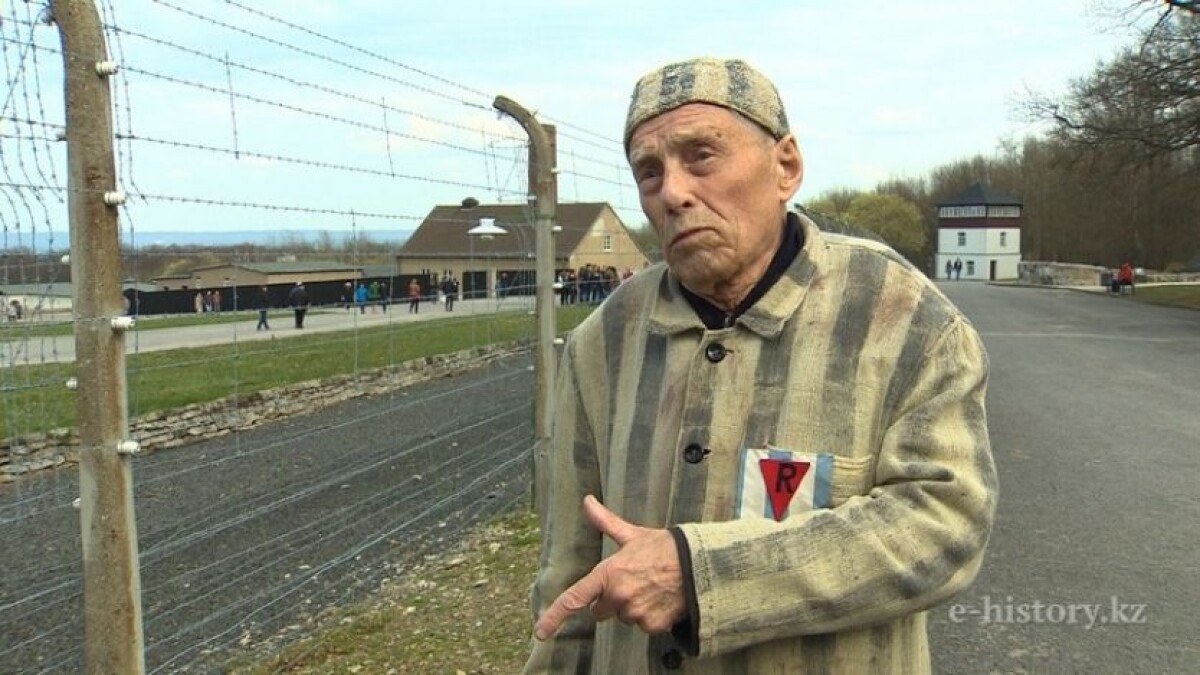
The lives of so many soldiers exiled to the "Death Camps" turned into hell. They were tortured by the Germans, and the Soviet regime equated them with "traitors." Even if they escaped death in the camps, then, on their return to the homeland, they expected even more persecution. They were exiled. They were incited. They were harnessed to black work.
During the war, The Hague and Geneva Conventions on prisoners of war were signed. Therefore, the states that signed the Convention humanely treated with prisoners foreign soldiers. Stalin's policy did not recognize this convention. Therefore, the soldiers were subjected to inhuman torture, to various medical experiments, mercilessly burned in crematoria. The position of the Soviet government "We do not have captives, we have traitors" turned the fate of millions of prisoners into the mystery.
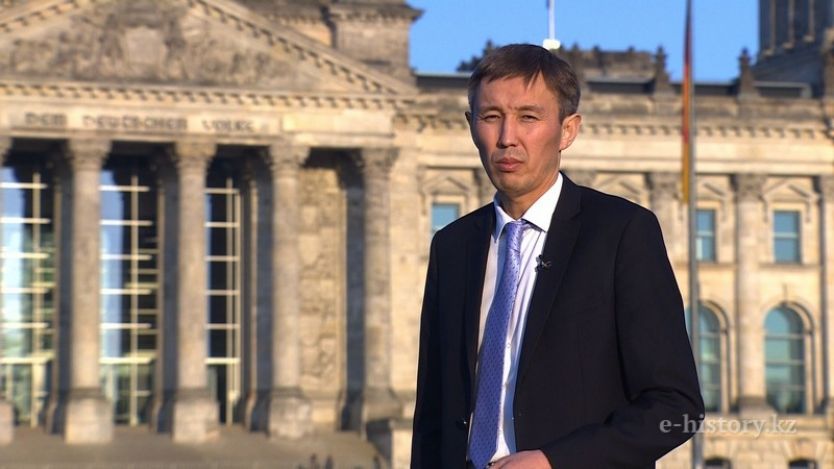
As a result, many Kazakhstanis and other representatives of the countries of the former socialist bloc are still forced to "recognize" their ancestors as "traitors". Several years ago, the topic of the journalist investigation “Free Prisons” by the journalist of the national television channel “Kazakhstan” Azat Rystanbek, who sought truth and looked into the secrets of those sad years attracted attention of the public. Since then, this topic has become the main object of newspapers and magazines, TV programs. This topic only now became relevant for Kazakh historians and descendants of prisoners and began to pave the way to truth. The simple truth revealed.
Studies of archives and documents of concentration camps, located in Germany - in the hearth of the camps of prisoners, gave their results.
We talked with Azat Rystanbek about his research, which attracted the readers' attention.
- The fate of the prisoners of war of the Second World War is one of the tragic pages of world history. These sad consequences were seen by Soviet soldiers of the Second World War, including our grandfathers. How did you come to this topic, which even many historians did not dare approach? What prompted you to conduct a journalistic investigation?
- My grandfather - Rystanbek, participated in the war. He reached to Berlin, was a witness of Victory, he returned to the homeland alive and healthy. And his younger brother was missing. I spent quite some time searching, trying to find at least the place of his burial. It can be said that, the research work about the fighters who stayed in foreign land, began with the search for the grandfather. I was very interested in this subject as a journalist, and on the eve of the 70th anniversary of the Victory, I made an offer to the management of "Kazakhstan" channel about the filming of cemeteries in Germany, Czech Republic, in particular, cemeteries where Kazakhs are buried. The project was supported, the plan was implemented. This was broadcast on the air, and there were those who found relatives. During an interview with the then Extraordinary and Plenipotentiary Ambassador of Kazakhstan in Germany, the current assistant to the President of the Republic of Kazakhstan Nurlan Onzhanov, I learned about the project to search and identify prisoners.
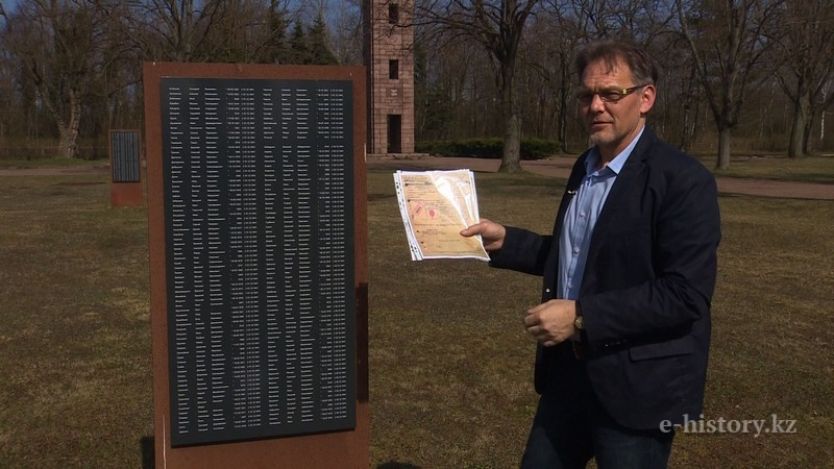
There is a book on this topic. This book from the first to the last page is devoted to the most bloody war that carried the burden and deprivation of the struggle against fascist Germany, the war that has ever been in the history of mankind. This is a book about our countrymen who have not returned from the bloody fields of the Great Patriotic War, those who were previously listed as "missing people". On the eve of the 65th anniversary of the Great Victory, a book presentation was held in Astana. The book was distributed to the reader. In due time, materials have been published on pages of printed editions. The importance of this book is that it contributed to the replenishment of national history. Understand the lessons of the past war, pay tribute to the veterans not mentioned. The next time, trying to find out on the basis of the information contained in the book, where the prisoners were kept, where they were buried, I again made a proposal to the ex-head of the corporation Nurzhan Zhalauovna. She supported and allocated finance, and as a result we first visited the camps. We visited the archives of the famous camps of the times of the war, made video footage from the sites. Thanks to this, we prepared the materials of our special project.
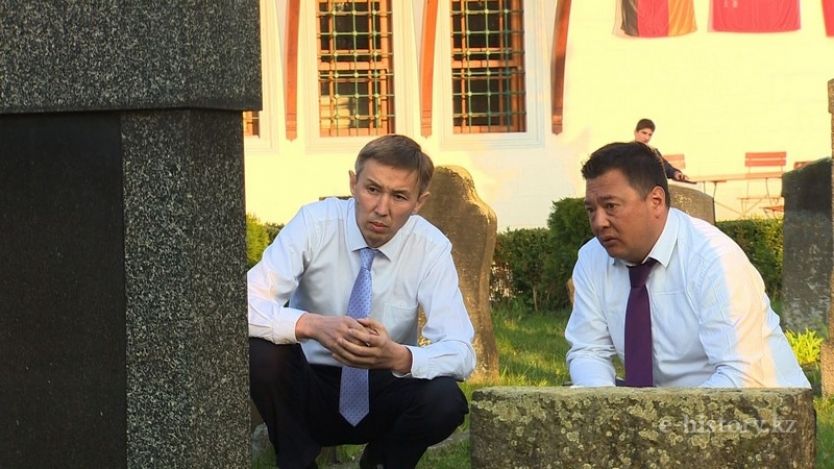
Turning over the archives of the death camps, where there were traces of a bloody war, we found once secret documents of the people of Kazakhstan. With the help of German specialists, we found out the burial places of Kazakh soldiers. After showing that program on the air, relatives of several people were found. I continue this work until now.
It is worth noting, in the Soviet era and until recently this topic was closed. Because according to Stalin's order, the prisoners were massively accused of traitors, information about them was not issued. Almost all the "missing" people were captured and died there.
- In which concentration camps in Germany were you during the research work? Are archival sources and documents of the concentration camps available to the population? How they managed to identify the Kazakhs among the Soviet military prisoners of the German concentration camps, called the "Death Camps"? There are even those who were buried in common graves. Are their numbered documents preserved in the archives? Tell us about the experts who are researching these documents?
- In general, there were more than 1,700 concentration camps and their branches in Europe. I was only in 3 camps, preserved until today; today they are a memorial complex. They are the most terrible, sad camps in Germany. Each concentration camp has for sure preserved its memorial complex, even research centers of the complex are preserved, and this is their peculiarity. Archives and museums of each complex are preserved.
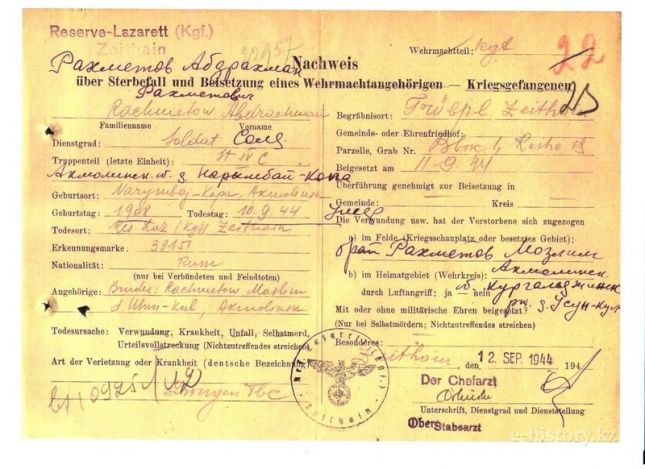
I was in the camps "Buchenwald", "Zeithain", "Sachsenhausen". In all there are documents of the people of Kazakhstan, at one time the Nazis filled out personal leaflets for everyone, photographed them, and even took their fingerprints; with their help you can find the burial places of many. For example, more than 130 of our countrymen are resting in the camp "Zeithain", 30 lists from the “Buchenwald” camp, etc. There are about ten prisoners in the camp of "Sachsenhausen". This is a huge job. The Germans are ready to support the search for archival documents, invite our historians to work together. In addition, all information regarding the prisoners is in the Podolsk archives of Moscow. They need to be taken, viewed; this is also a big work, a complex matter. Only then can general information about prisoners of war be clarified. According to the Presidential Archive there is information that, perhaps about 200 thousand of our fellow countrymen were in captivity. This statistic can be even greater. To date, about 30 thousand are already known. They are published on the site "tutkyn.kz".
-This is the theme of the story of the unknown history of the Great Patriotic War. Do we have experts in the country that conduct research on captives? Have you consulted with them, conducted joint work?
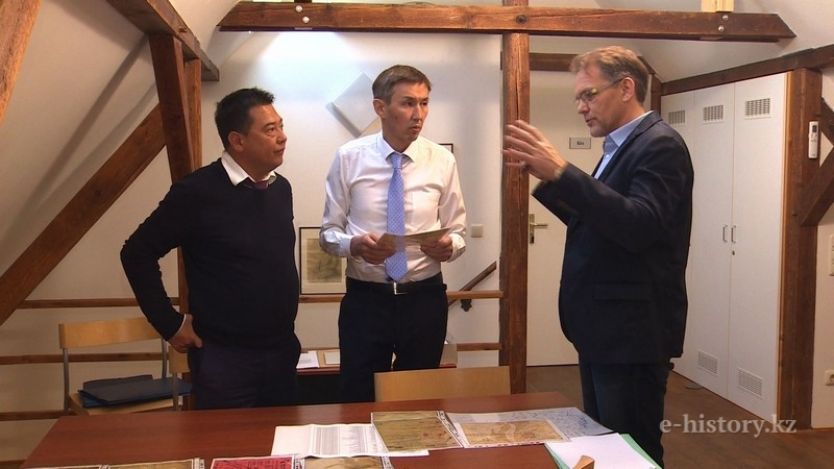
-The first who deeply researched the topic and raised the issue of prisoners is the teacher of the Kazakh National University, doctor of historical sciences Gulzhaukhar Kokebayeva. In the 90 years, she was the first to work in the archives of Germany, wrote a monograph on this topic, and defended the doctoral. Along with the archives of the President, there are other historians. I worked closely with them; they helped a lot, because all the valuable information was in their hands. Everyone talks about the need to rehabilitate the mass-blamed front-line soldiers. According to them, they were specially captured, someone was wounded, and someone could not defend themselves, there were not enough weapons, many fled and fought with the enemy. But the Soviet government had a negative attitude toward them. Upon their return to the homeland, they were considered enemies of the people, there was no support, and some were tried and exiled to Siberia. After Stalin's death, many were relieved of charges, some were acquitted, and they were released. But the stigma of "traitor" did not escape them. Therefore, I believe that it is time to give a legal assessment of this topic.
- The German government pays "compensation" for the murders and torture of prisoners. Since, on the whole, you conducted research on this topic, are there any Kazakhstanis who received this compensation?
-Bundestag of Germany (Parliament) to the 70th anniversary of the Victory adopted the Law on the payment of compensation to living prisoners. Recently this news was announced by the government. Since that time in the CIS countries, among them and in Kazakhstan, began work on the search for prisoners of war, the collection of documents. This work was taken in the hands of the archives of the President. Since, information, documents that were once stored in the competent authorities, are handed over and are now published on the site "tutkyn.kz." Work is underway to change attitudes towards the mass-accused, determine their status. With the assistance of the President's archive and local archives the living prisoners were found. Many of them are from the south - 15 soldiers; from West and East Kazakhstan regions and Astana there was one elder. All handed over the documents, and recently received compensation. Everyone was paid 2.5 thousand Euros. It was not easy to find them. Because the documents are not systematized, many have not heard. Recently, the Ministry of Labor and Social Protection of the Republic of Kazakhstan has found another 90 people on its bases. This event will end in August 2017. After that, there will be no payments.
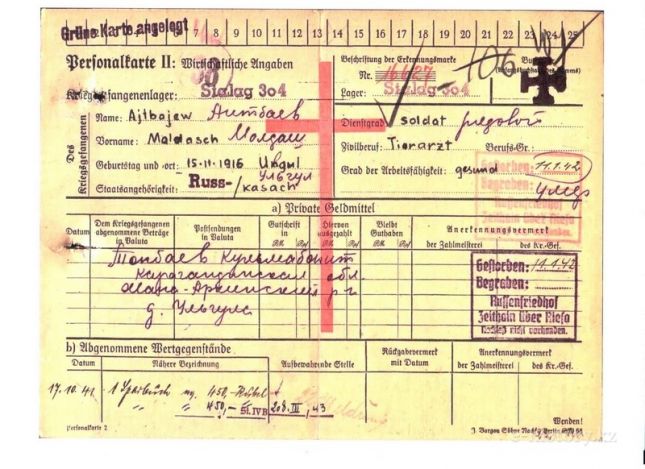
- The authorities of other countries have rehabilitated their prisoners, are providing state aid. Is our state inclined to render assistance in order to maximally improve the condition of the former prisoners? Or could the issue of searching for names of prisoners buried in the German land rise, compensation to descendants? Around this problem, the Israelis raised an excellent initiative; the bill approved the status of prisoners. And how are things with us?
-The countries of Europe, the United States, even Germany supported in every possible way its prisoners, who participated in the Second World War. The survivors were awarded, handed medals, and took care of them. Even Russia in 1995 issued a decree on the rehabilitation of unreasonably accused, the status of prisoners were leveled with the front-line soldiers. Therefore, we also need to take it in hand. The archives of the President offered such an offer, in my opinion, in connection with the crisis was postponed for later, perhaps it will be decided soon. Now only 100 prisoners are alive. Many of them have a bad condition. I think that it is necessary for old people with a wounded heart, for living descendants.
- Looking through archival documents, we noticed red signs with the word "Asian". What do these actions of the Germans say? Were they afraid of Asians? Or was there some kind of political ideology?
-The main ideologist Joseph Goebbels used Kazakhs, Asians for internal agitation. More precisely, the Germans spread information that, not they started the war, but on the contrary, that the Turks, the descendants of Genghis Khan, attacked the country and it is necessary to defend them. The press published pictures of Kazakhs, as well as other Asians, frightened people, called for unity. And the Europeans' hair stood on end at the word “Asian”, the Turks. In the early years it was like that. Even in personal documents in the concentration camp set a special mark "Asian". That is, they were feared and believed that, they need special control.
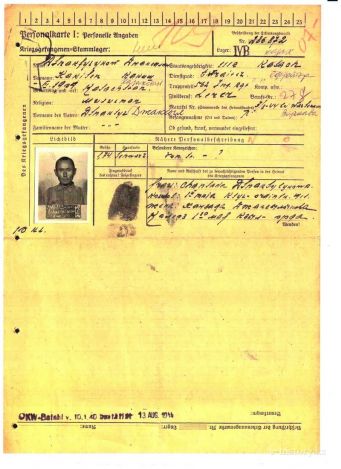
- Every April 11, the whole world marks a memorable date - the day of liberation of prisoners of fascist concentration camps. Did you ask the German people about the history of this day?
-April, 11 - International day of liberation of prisoners of Nazi concentration camps. Annually on this day in the concentration camps on the territory of Germany, Europe, commemorative events are held. Because it was on this day of 1945 that Buchenwald's inmates carried out an uprising, took control of the camp. After that the Allies began to liberate other camps. At these annual commemorative events from all parts of the globe people come. Many people were brought into the tradition to come in the clothes of a prisoner of that time. Every year their ranks are thinning. A person entering the camp territory can not help shuddering. Gas chambers, torture rooms, and crematoriums carry the horrors of those years before their eyes.
- Thank you for the interview!
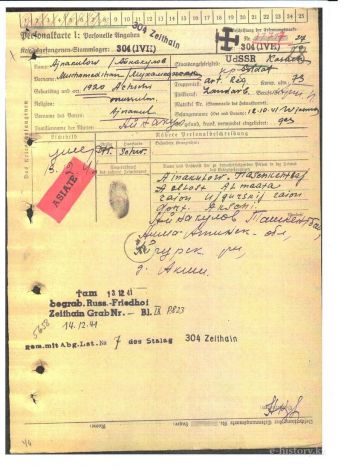
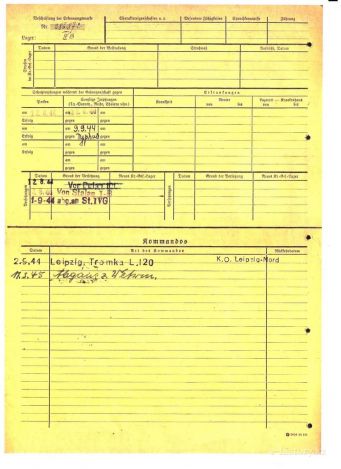
Translated by Raushan MAKHMETZHANOVA
